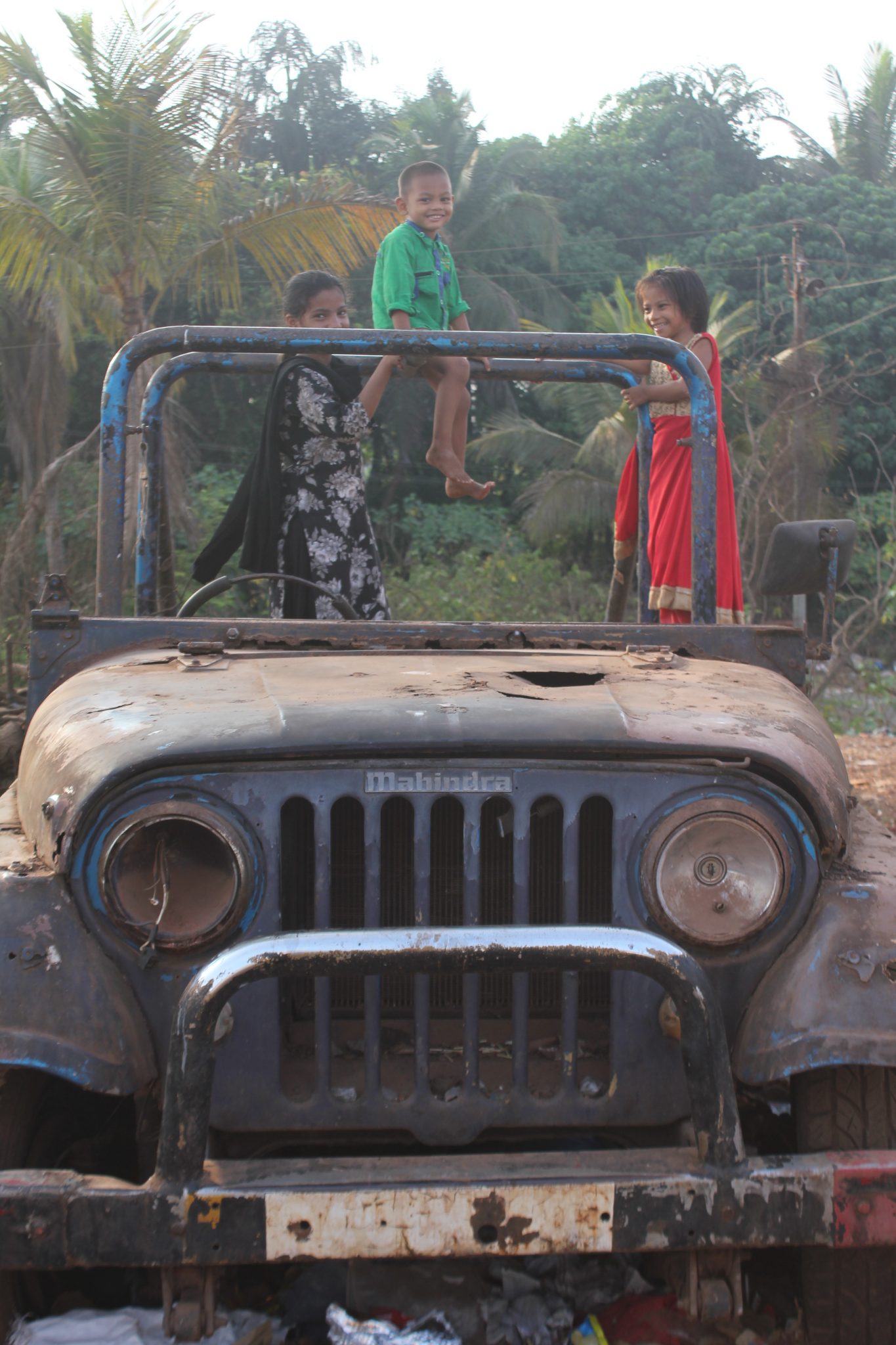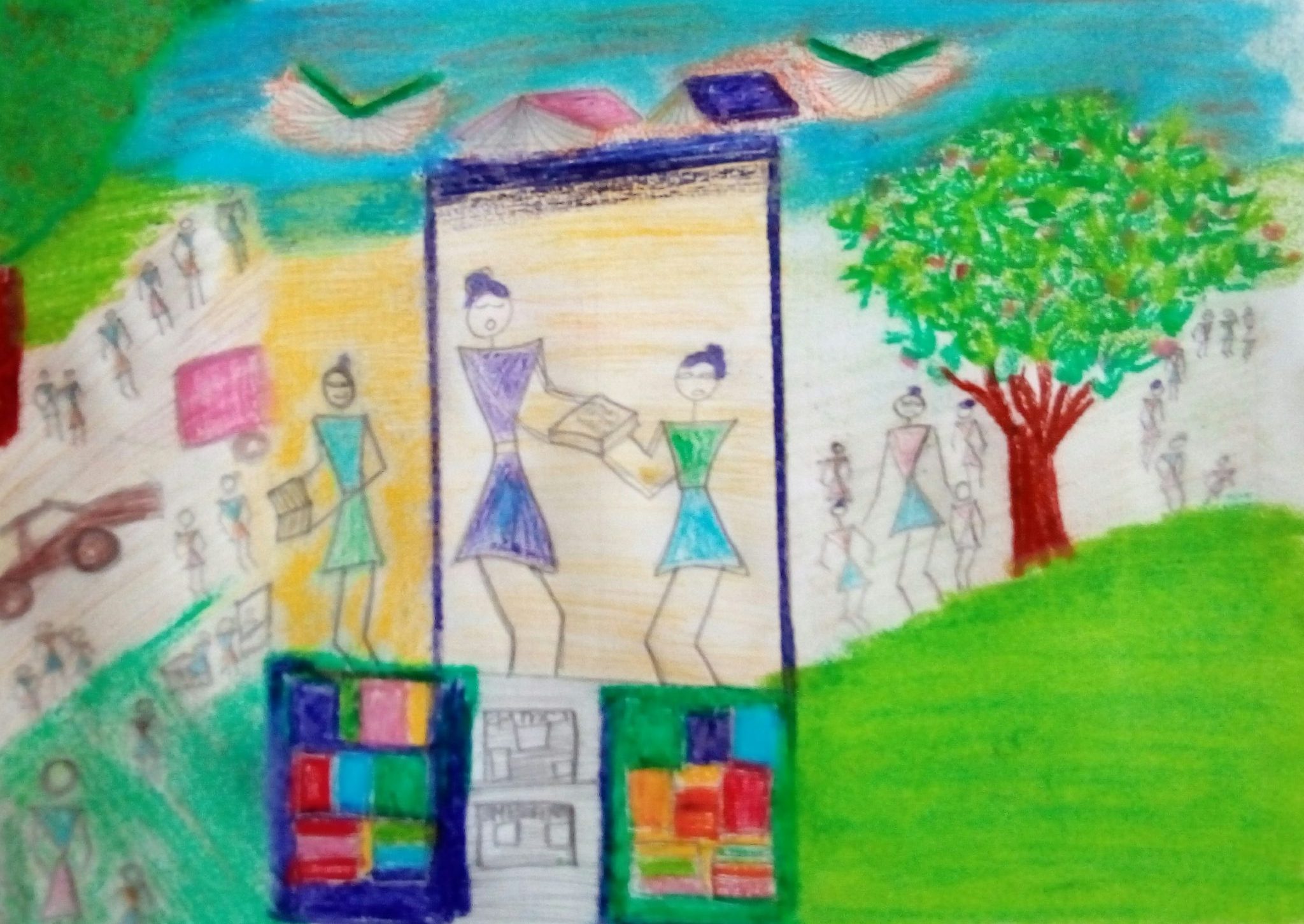When I joined the team at Bookworm library, I heard many stories about experiences at MOP Chimbel. From these and from the children coming to the library, I learnt how the community had migrated from different parts of Karnataka, some familiar to me (at least by name or district). The children who come to the library have grandparents and parents who settled here in 1981 as a settlement for work (building of the Mandovi Bridge at the time). The perhaps temporary site became a permanent one of sorts over the last 30 years. Life continued on its way, the population grew and children began their lives in this settlement, a world of their own, but very much their home. It is a world of their own because outside Indiranagar, the community still carries the tag of being a migrant population. While the place itself bustles with its mini markets, shops and eateries and much skilled labour like carpenters, electricians and masons come from here, they are often not treated with the same respect as a local community. People tend to call them names, ‘ghati’ being the nicer of them, because it translates as ‘people of the ghats’.
It is a world of their own because outside Indiranagar, the community still carries the tag of being a migrant population. While the place itself bustles with its mini markets, shops and eateries and much skilled labour like carpenters, electricians and masons come from here, they are often not treated with the same respect as a local community. People tend to call them names, ‘ghati’ being the nicer of them, because it translates as ‘people of the ghats’.
True that the place has waste issues (garbage and sewage), irregular water supply , overcrowding and troubled times, just like any other. At the same time on taking a closer look, you see children laughing and playing in the narrow streets, pots with aloe vera, plants and flowers lining the window sills and birds that fly across to the trees in the surrounding stretch uphill, not showing any sign of differentiating between the boundary of Indiranagar and outside.
People here are not easily trusting of those entering their community, perhaps rightly so as a self-defence mechanism of any community that is surrounded by others that don’t look at it as their own. Like an island. As a community library we still have to sometimes struggle to get children to come to the library, yet we have in a small way been part of this community for eight years. Being accepted by this community makes me realise that it can only be because a library does not differentiate between people of a different state or religion or social class, rather looks at everyone simply as children who would like to listen to a story or borrow a book. The library thus acts as a window through which the community sees the world and the world sees the community. The children would have several instances of being treated like someone who do not belong. A Class 11 girl was once asked if she would consider herself to be from Goa or Karnataka. Her automatic response was that she felt Goan. Not surprising because she had only visited her native place once in her young life when she was barely a year old. My attempt to understand if she was offended by such a question was brushed away by her calm reply saying, ‘you don’t have to worry, we know who we are.’ I wondered where this quiet assurance comes from and how a library can perhaps help each of us find our place in the world, despite what is happening on the outside.
The children would have several instances of being treated like someone who do not belong. A Class 11 girl was once asked if she would consider herself to be from Goa or Karnataka. Her automatic response was that she felt Goan. Not surprising because she had only visited her native place once in her young life when she was barely a year old. My attempt to understand if she was offended by such a question was brushed away by her calm reply saying, ‘you don’t have to worry, we know who we are.’ I wondered where this quiet assurance comes from and how a library can perhaps help each of us find our place in the world, despite what is happening on the outside.
